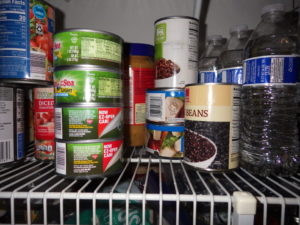Hurricane Prep Tips From Volunteers
go.ncsu.edu/readext?728946
en Español / em Português
El inglés es el idioma de control de esta página. En la medida en que haya algún conflicto entre la traducción al inglés y la traducción, el inglés prevalece.
Al hacer clic en el enlace de traducción se activa un servicio de traducción gratuito para convertir la página al español. Al igual que con cualquier traducción por Internet, la conversión no es sensible al contexto y puede que no traduzca el texto en su significado original. NC State Extension no garantiza la exactitud del texto traducido. Por favor, tenga en cuenta que algunas aplicaciones y/o servicios pueden no funcionar como se espera cuando se traducen.
Português
Inglês é o idioma de controle desta página. Na medida que haja algum conflito entre o texto original em Inglês e a tradução, o Inglês prevalece.
Ao clicar no link de tradução, um serviço gratuito de tradução será ativado para converter a página para o Português. Como em qualquer tradução pela internet, a conversão não é sensivel ao contexto e pode não ocorrer a tradução para o significado orginal. O serviço de Extensão da Carolina do Norte (NC State Extension) não garante a exatidão do texto traduzido. Por favor, observe que algumas funções ou serviços podem não funcionar como esperado após a tradução.
English
English is the controlling language of this page. To the extent there is any conflict between the English text and the translation, English controls.
Clicking on the translation link activates a free translation service to convert the page to Spanish. As with any Internet translation, the conversion is not context-sensitive and may not translate the text to its original meaning. NC State Extension does not guarantee the accuracy of the translated text. Please note that some applications and/or services may not function as expected when translated.
Collapse ▲All the hurricane prep lists say we need to have a supply of foods that don’t require refrigeration or much cooking. We polled our Extension Master Food Volunteers about the items that they usually put in their hurricane kit. They had some great ideas:
- Lots of cans of tuna and green beans along with vinegar and oil to use as dressing.(Lee Harlow)
- Cans of tuna, corned beef and tomato soup. (Tom Corbin)
- Canned fish (tuna, salmon, sardines, anchovies). (Jane Kulesza)
- Canned ingredients to make black beans and corn salsa and tortilla chips (to allow for snacks during family board games). (Jane Kulesza)
- Keep plenty of canned goods, beans, pasta, rice.(Paul Reinmann)

One item that’s frequently on the hurricane prep list is a hand-cranked can opener — great for opening all those pantry stables when the electric can opener won’t work. But what if you have arthritis and have a hard time using those hand can openers? One of our followers called and offered another good piece of hurricane prep advice related to this. She suggested that when stocking up, look for canned goods that have a “pop top” to make it easier. She said she’s found tuna, soup and other items with these tops. Another thought…look for items in pouches that are easy open.
N.C. Cooperative Extension has a series of Fact sheets on Disaster Readiness and Response and Recovery. These fact sheets contain information on everything from keeping food frozen to powerless cooking to dealing with storm damaged trees.
Source: Cheryle Syracuse, Family and Consumer Science staff member at N.C. Cooperative Extension, Brunswick County Center



